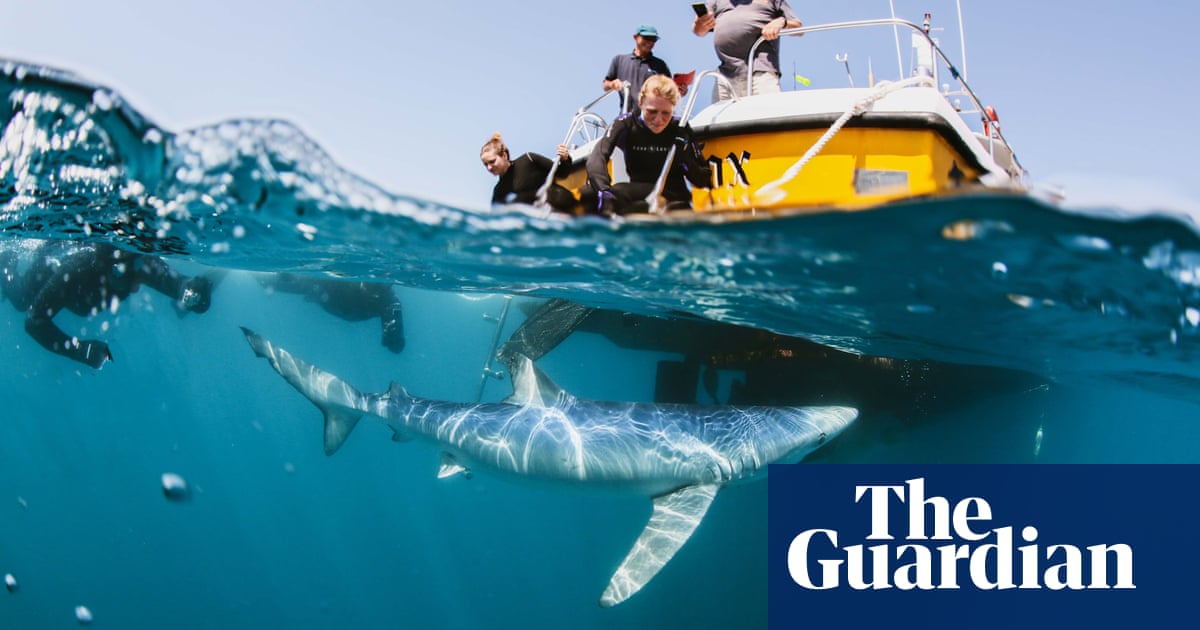We have only been waiting in the grey Atlantic swell a few moments when the first flash of metallic blue appears in the water. A blue shark, a few miles from the coast of Penzance in Cornwall, emerges from the depths. It is time to get in the water – but part of my brain rebels.
“It’s not what you think it will be like … not that ingrained fear that everyone has about sharks. But until you get in the water with them, that fear will remain,” the guide says to the group.
Slipping off the boat, covered head to toe in dark wetsuits, we are instructed not to shout if we see one but to raise a hand, wave and point. We wait, peering through the gloom at the mackerel lure below us. But the shark does not return, and we heave ourselves back on board.



This is the best summary I could come up with:
The shark-diving industry in Britain is still tiny, with a few providers on the south-west coast in England and Wales, but the idea has attracted increasing interest since the pandemic, spurred by footage of encounters on social media.
It is a sign of how rare shark attacks are in the UK that some statistics include a bite that took place in a pub in the West Midlands, more than 50 miles from the sea.
But the growing UK sector was rattled in 2022, shortly after my own dive, when a woman on a blue shark tour was bitten on the leg, in an incredibly rare example of an “unprovoked” attack in British waters.
The bitten woman, who walked off the boat, issued a statement through the company saying she was scared but fine: “Despite how the trip ended, it was amazing to see such majestic creatures in the wild and I don’t for a second want this freak event to tarnish the reputation of an already persecuted species.”
The animals visit the UK’s south-west coast in the summer, travelling thousands of miles from the Azores to the Caribbean and back to Britain and Ireland in their north Atlantic territory.
Some tours are working with university researchers to aid the survival of the species, testing magnets to repel the sharks in the hope that they can one day be used on long-line trawlers to stop them being caught as bycatch.
The original article contains 857 words, the summary contains 239 words. Saved 72%. I’m a bot and I’m open source!